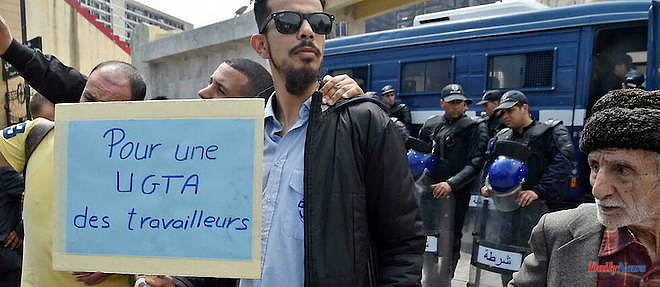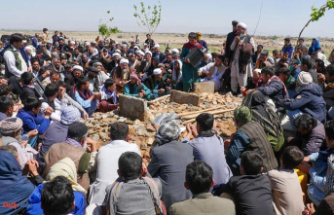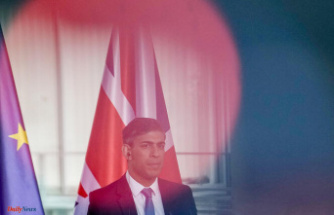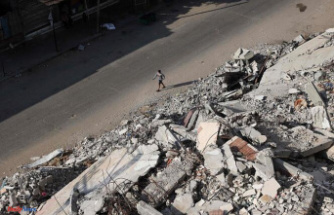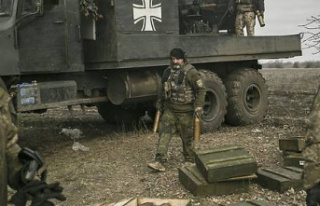On Tuesday, March 7, the bill relating to the exercise of trade union rights was adopted by a majority by the lower house of the Algerian Parliament. According to the government representative present during the vote, the Minister of Labour, Employment and Social Security, this new text "should give impetus to our country's societal project, provide a framework for trade union action, strengthen the role of trade union organizations in defending rights and achieving social justice”. The law should also provide, according to this official, "legal protection for workers' representatives by also allowing the emergence of strong trade union organizations on the national scene through their membership in federations and confederations".
This text, as well as the draft law on the prevention of conflicts in the workplace and the exercise of the right to strike, which have not been amended for almost thirty years, have aroused the concerns of the various unions, which have multiplied statements and meetings to denounce the new legislative provisions. Even the very obedient General Union of Algerian Workers (UGTA, former single union before union pluralism) surprised everyone by expressing serious reservations about these texts.
While deploring not having been associated with the preparation of these bills, the UGTA, in a press release dated January 22, considered that "the articles of the two bills are not in conformity with the international conventions that Algeria has ratified". “Certain articles of the two bills are also not in accordance with the Algerian Constitution, with regard to civil and political rights. The two bills do not enshrine the promotion of trade union rights and freedoms in Algeria, "says the UGTA. An extremely rare attitude for this union reputed to be close to the public authorities.
On January 28, about thirty public service unions organized a strike, which was relatively unattended, but which marked their opposition to the two bills which were presented the same day by the government to the deputies.
For the Confederation of Autonomous Trade Unions (CSA) "it is true that this new bill [of law] has recognized certain rights in favor of trade union activity, but the designers of the project have also set incapacitating and prohibitive conditions imposed on the right to strike which is guaranteed by law”.
In detail, the unions criticize, in particular, the increase in the union representativeness rate from 20 to 30% according to the new provisions, which would be "binding, even impossible to achieve", to use the terms of the National Union of Staff. education and training (Unpef).
“What I consider illogical is that there are 34 unions in one sector. Unionism is a constitutional right. Whoever is going to fight against this right is fighting the Constitution, President Abdelmadjid Tebboune reacted at the end of February. However, it is inconceivable that a handful of people meet in a room and create a union without any representativeness. Faced with the unions' criticism of the right to strike, the head of state told the media: "It is inconceivable to wake up in the morning with a text message saying that the workers are on strike. The right to strike is regulated by law and must be considered as the ultimate and last solution. There are procedures to follow and that is what we want to put in place today. »
"The new provisions above all allow an increasingly heavy intrusion of the administration into trade union action, in total contradiction with the spirit of freedom of association", underlines a trade unionist from the public health sector who lists at least six articles that frame the internal functioning of trade unions, citing the limitation of the number of trade union mandates to two per person and the prohibition of pursuing a political career alongside trade union activity.
The same trade unionist is also concerned about "restrictions on the right to strike with the extension of 'sensitive' sectors". Thus, "strikes in hospitals would no longer be allowed," he continues. The law on the prevention of conflicts in the workplace and the exercise of the right to strike provides "to prevent strikes in strategic sectors of sovereign sensitivity and in fundamental interests of vital importance to the nation". Sectors where "the cessation of activity may endanger the life, safety or health of the citizen, or the possibility that the strike may lead to a serious crisis".
While some trade unionists recognize positive points, such as "the possibility of setting up trade union federations and confederations, after years of UGTA hegemony", they criticize the sanctification of "trade union unity". The new law allows "only one union representation in the tripartite [government-union-employer meetings]. Implicitly, it will be the UGTA which will be invited to these meetings, closing the door in the face of the other central trade unions and independent unions. This means that trade union pluralism will no longer have any real value on the ground and in decision-making, "criticism, in the columns of El Watan, Sadek Dziri, president of Unpef.

